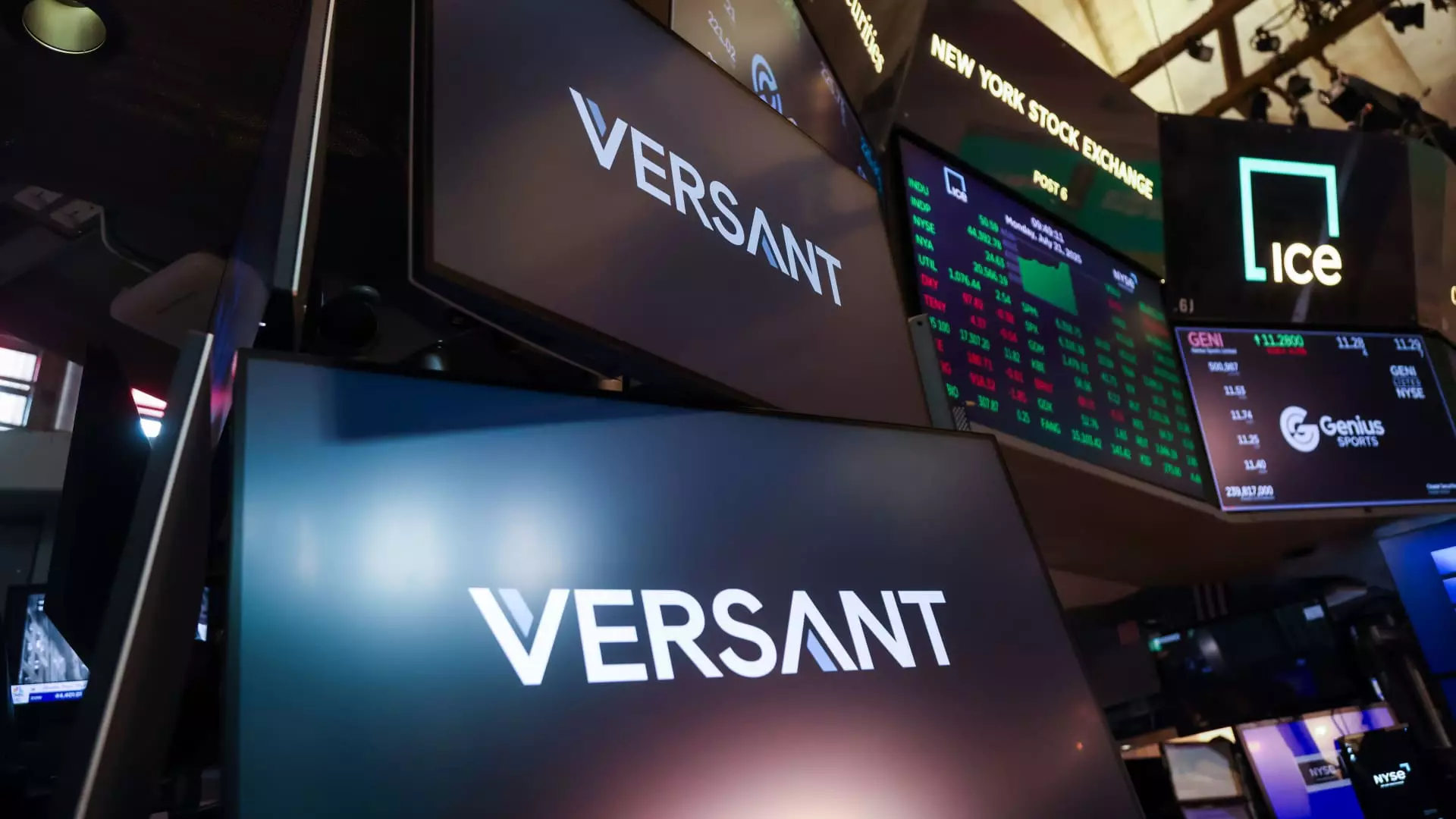The recent announcement of Versant’s board members signals a fundamental transformation in the landscape of media ownership, one that warrants deep scrutiny and critical reflection. As Comcast spins off its cable networks into this nascent entity, the consolidation of influential figures from various sectors—media, finance, technology—highlights a strategic maneuver that could redefine the very fabric of content dissemination. The move suggests that traditional media giants recognize the imperative of reinventing their corporate structures amidst evolving consumer preferences and technological disruption. Yet, beneath the surface lies a complex web of power, influence, and corporate motives that merit skepticism.
Certainly, assembling a formidable board with diverse backgrounds appears to offer Versant a robust foundation for innovation and strategic agility. The inclusion of industry veterans like Mark Lazarus and Rebecca Campbell suggests a drive to preserve legacy media while simultaneously fostering growth in digital and entertainment sectors. However, this diversity of experience raises questions about potential conflicts of interest and the degree to which these figures can challenge entrenched corporate paradigms. Are they catalysts for genuine innovation, or simply insiders facilitating the continuation of existing hegemonies under a new guise?
The Significance of Leadership: From Legacy to Innovation
Mark Lazarus, now at the helm of Versant, embodies a transitional figure—someone deeply rooted in traditional media but tasked with steering a new independent company. His statement that they are “defining long-term strategy” hints at a strategic pivot, but the core remains rooted in legacy content assets. Conversely, figures like David Eun, with their ties to artificial intelligence and technological innovation, point toward a future dominated more by data and digital prowess than traditional broadcasting. Still, one must question whether such appointments genuinely symbolize a shift toward democratized media or merely a rebranding that preserves concentrated corporate power.
The presence of Rebecca Campbell from Disney infuses a glimpse of international insight into the board, but it also raises the uncomfortable prospect of conglomerate overlap and potential overly centralized control of diverse content streams. While the expertise is undeniable, critical oversight is necessary to prevent the consolidation of too much cultural and informational influence within a handful of powerful executives. The risk is that an entity branded as “independent” might operate under the same commercial imperatives, extending corporate reach and influence rather than serving public interest.
The Implications for Audience and Content Diversity
As the new entity, Versant, is poised to oversee prominent cable networks and digital media properties, the implications for content diversity and accessibility are profound. On the surface, spinning off these assets could fuel more competitive innovation freed from parent company constraints. But history offers a different perspective: such corporate reorganizations often mask strategic efforts to tighten control over lucrative content pipelines, reducing innovation and competition in the process.
The inclusion of leaders with backgrounds in finance and law can be interpreted as an emphasis on optimizing profitability—potentially at the expense of journalistic integrity, cultural representation, and public service. The transformation seems less about democratizing media and more about controlling and monetizing an ever-shrinking space in the digital age. The consolidation of NBCUniversal’s cable networks under Versant could spell increased corporate influence over what many expect to be a more diverse media landscape.
Moreover, the digital assets attached to Versant—Fandango, Rotten Tomatoes, GolfNow—are gateways into entertainment and consumer culture that shape public perception and social discourse. When such power concentrates into a new corporate layer, the risk of homogenized content and algorithmic biases grows larger. Audiences may inadvertently become passive consumers rather than active participants in a pluralistic media environment.
In this dynamic reshuffling, what is most striking is the superficial veneer of innovation cloaking a deeper reality: the relentless pursuit of corporate dominance in media and entertainment. The appointment of a high-profile, diverse board may suggest efforts towards a more open and innovative future, but the underlying motive remains the consolidation of influence and profits. This spinoff, while presented as a new chapter, potentially signifies little more than a strategic maneuver to preserve and expand the power of the existing corporate aristocracy under a different corporate name.
For those who value a truly free and diverse media landscape, the appointment of these industry insiders and financiers raises alarm bells. It underscores the urgent need for vigilant oversight and public engagement to ensure that corporate restructuring does not translate into diminished content pluralism, reduced transparency, and increased control over the narratives that shape society.

